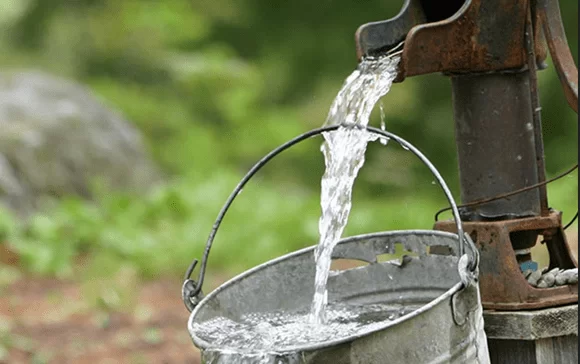Stakeholders in water sector urged to explore innovative water solutions
This year’s event would, among other things, advance new ideas, reflect on the progress and barriers to growing safe water enterprises, as an essential part of a mix of water services for delivering safely managed water services for all, particularly in Ghana’s peri-urban areas and small towns.
Mr Charles Nimako, Country Director of Safe Water Network, has urged stakeholders in the water sector to explore innovative and innovative solutions for providing improved and sustainable water services, particularly in rural and peri-urban areas of the country.
According to him, there is an urgent need to invest funding and other resources in scaling up safe water enterprises, which would complement the government’s efforts to ensure Ghanaians have equitable and clean access to water by 2030, in line with Sustainable Development Goal 6.
Mr Nimako, speaking at the 2024 edition of the ‘Beyond the Pipe Forum’ organized by the Safe Water Network (SWN) on Wednesday in Accra, underscored the importance of scaling up small water enterprises to augment the government’s efforts to achieve sustainable access to water.
He stated that the Network’s efforts over the last few years had resulted in a significant improvement in the market for safe water enterprises, with over $20 million invested in the water sector and over 2 million people now receiving safe, reliable, and affordable water services across Ghana’s 16 regions.
Mr Amidu Issahaku Chinnia, Deputy Minister for Sanitation and Water Resources, said there was a need for non-state water service providers to collaborate with the government to provide access to safe and potable water, especially in small towns and rural communities.
He commended SWN for supporting the government’s efforts to expand water services in peri-urban areas and small towns, as well as advocating for better and more sustainable water services in Ghana.
“SWN has particularly focused on Ghana’s water sector drawing attention to critical policy issues as well as implementing interventions together with its partners to provide water solutions to many communities.” The Deputy Minister added.
Mr Chinnia explained that maintaining access to safe water was a national priority, and the government remained committed to providing safe, reliable, and affordable water to all.
“We are undertaking several rural and urban water projects across several regions in Ghana.”
The Deputy Minister added that, while the government recognized the importance of not only infrastructure but also enabling legislative and regulatory frameworks, it was addressing the problems posed by rising urbanization, which exacerbates demand for water services in peri-urban and rural areas.
“We are also faced with the task of managing our water resources to satisfy the growing needs of our population, a challenge for both the present and future. Our varied service landscape features a mix of providers and delivery models, but we lack a robust institution to coordinate this activity yet face fiscal constraints and competing governmental demands,” he said.
He said there were competing needs within the state and that access to clean water is a fundamental human right for all, therefore, any organisation, or partnership that would help the government to achieve its goals of making water accessible to all Ghanaians was welcomed.
The Forum, themed “Safe Water: The Power of Enterprises,” brought together 200 leaders from the public and private sectors, as well as development partners, to discuss how to grow safe water enterprises to provide water services to an estimated 3.2 million people in over 1,000 peri-urban communities and small towns in Ghana by 2030.
This year’s event would, among other things, advance new ideas, reflect on the progress and barriers to growing safe water enterprises, as an essential part of a mix of water services for delivering safely managed water services for all, particularly in Ghana’s peri-urban areas and small towns.
It also aims to facilitate knowledge exchange, networking, and partnerships among key stakeholders from the public and private sector, development partners, civil society, and academia to improve sustainable water services and developing short to medium-term work programmes to address challenges and delivering sustainable water services at scale.
Safe Water Network is an international non-profit organization which leverages best practices, tools, and expertise across hundreds of communities to improve the performance of community-based safe water solutions with public, private and NGO partners.
So far, the organisation has implemented community-based water solutions in more than 40 districts in ten regions of Ghana, benefiting 150 villages and providing safe and reliable water to over 500,000 people.
Source: GNA


